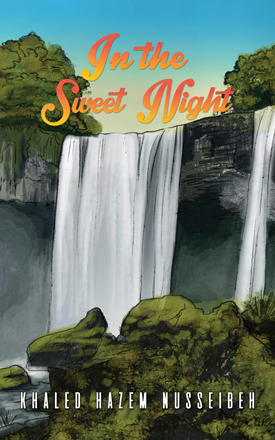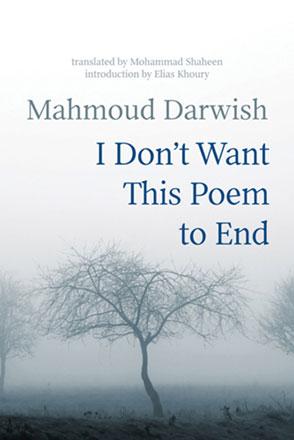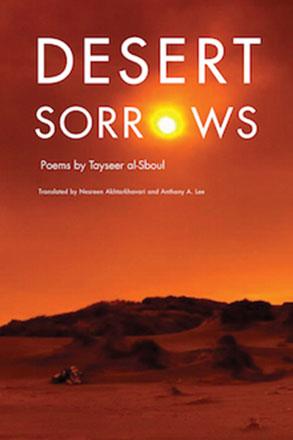You are here
A poetic search for truth
By Sally Bland - Jul 31,2016 - Last updated at Jul 31,2016
Why? A Book of Thoughts
Khaled Nusseibeh
Amman: Ministry of Culture, 2016
Pp. 77
The title “Why?” of Khaled Nusseibeh’s new book could indicate confusion, outrage or an existential query, depending on the tone of voice, but reading this collection of poems dispels any notion that the author is confused. On the contrary, the contents show that he knows what he wants and is firm in what he believes. There is, however, a quietly simmering sense of outrage at injustice in many of the poems. As for existential queries, they are there in many of the poems, but they are resolved beforehand by Nusseibeh’s deep and sincere faith.
Some of the poems reflect an acute sense of place, such as the opening one which describes the ancient sites of old Amman as viewed from Mamdouh Bisharat’s charming hilltop home: “Traces of bygone ages/And testaments to an unfolding present… Do the ancient hills of great Amman speak?/The untold story of epic tales?” (pp. 10-11)
Other poems quickly fan out to encompass the universe, expressing wonderment at the spectacular patterns found in nature, such as in the poem “Why?” which lends its name to the book: “If only I could describe/And accurately gage/The twinkling of a star/The crest of a wave” (p. 26)
Several poems deal with Palestine, celebrating its beauty, the torments to which its people are subjected, and their heroism. In a poem titled “Long Live Gaza”, he writes: “Valiance is of epic proportions/Equaled only by the inactions of brethren abroad/Scores of states do not lift a finger/To alleviate human suffering… And yes, O Israel, can you not awaken to the reality of a history of inordinate suffering…”. (p. 15)
Another poem harks back to Salah Eddin’s liberation of Jerusalem and the city’s unhappy fate today: “Coveted profoundly but insufficiently valued/Like the sun that emits warm and golden rays.” (p. 17)
Nablus also merits a poem of its own: “Menaced by multitudes of invading forces… Embodying a dazzling history, and a glorious present/Of people who steadfastly endured/And nurtured a splendid living tradition.” (p. 20)
Also under the spotlight is the village of Ni’lin: “Presently threatened by a vicious penchant to seize/To transfigure, to colonise, to violently pacify/Ni’lin, however, is a citadel of steadfastness/Bolstered by activist conscientious objectors/Brave Jews and foreigners who have joined a righteous cause/To defend a village fighting for its integrity, its survival.” (p. 67-68)
Nusseibeh decries war and human suffering everywhere, highlighting the plight of refugees and of children denied basic necessities, such as food and water. Images of mountains reoccur throughout the poems, symbolising stability, strength, truth and the ability to see life from different perspectives. In the poem called “Grievances”, he states: “People can overcome by slowly climbing/A mountain of more objective truth.” (p. 53)
Also present throughout the poems are affirmations of Nusseibeh’s deep faith in God, suggesting such faith as the antidote to redress the many ills plaguing humanity. In a poem named “Let’s Sing the Praises of God”, he asserts: “Reformation that is as essential as water and air/To humanise and rationalise a declined society… A reaffirmation of the cardinal principles of equality/Of faith, liberty, justice, and advancement/Never in the annals of human history/Has so much been sacrificed for the narrow interests of the few… Let’s move away from perdition’s sinister path/And join in unison to sing the praises of God.” (p. 31)
Writing in erudite language with philosophical and spiritual overtones, Nusseibeh strikes a delicate balance between agonising over the problems afflicting humanity and his abiding conviction that these could be resolved if people are true to their faith. “Why?” eloquently records the poet’s search for knowledge, peace, compassion and justice. “Why?” can be obtained by contacting the author at the following e-mail address: ubada@ubada.net.
Related Articles
Palestinian resistance is also celebrated as in a poem about hunger-striking heroes that reads...
I Don’t Want This Poem to EndMahmoud DarwishTranslated by Mohammad Shaheen US: Interlink Books, 2017Pp.
Desert SorrowsTayseer al-SboulTranslated by Nesreen Akhtarkhavari and Anthony A. LeeEast Lansing: Michigan State University Press, 2015Pp.














